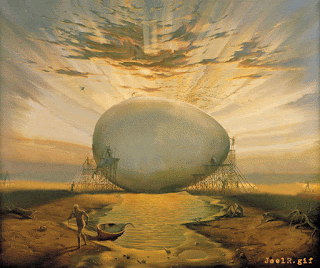THE physical body does not experience pleasure, rather the causal, astral bodies signify the resonance that the certain physical pleasures may inspire. For example, the sweet that you are eating: although the physical body registers both nourishment and sugars, it does not of itself experience the pleasure in which your consciousness takes part in.
Such pleasure is voluntary, when one succumbs to the essence within the sugars, and the essence that has more reality within etherical and astral substance: the character and nature of the sugar, rather than its chemical and organic composition. Pleasures cannot take part within the 'mental world' in this context, as thoughts themselves are indifferent as it were, to the colored impulses that receive and deflect.
Physical pain of course, is a reality. However there is much 'anguish' that can reach extremes, which may or may not be provoked by such physical pain. Let us say that this may be termed by many as 'mental anguish' and once again, is viewed as living purely through the thought-world alone.
In the instance of pleasures, as we have indicated, the man receives such pleasures and delights therein in a voluntary way, giving over to that which we have termed - for the time being - as the essence of that which he derives pleasure from. All of this is relating to and responding to, the astral and etheric substance in both.
Physical pain of course, is a reality. However there is much 'anguish' that can reach extremes, which may or may not be provoked by such physical pain. Let us say that this may be termed by many as 'mental anguish' and once again, is viewed as living purely through the thought-world alone.
In the instance of pleasures, as we have indicated, the man receives such pleasures and delights therein in a voluntary way, giving over to that which we have termed - for the time being - as the essence of that which he derives pleasure from. All of this is relating to and responding to, the astral and etheric substance in both.
In the case of pain, we have opposition within the man to that which confronts his being, and the conflict and rejection marks the intensity of the pain, believed to be mental, that is experienced within the human constitution. Neither of these conditions is a comment as to whether or not indulgence in either should lead to an unhealthy destruction of the individual, but is meant as something of an explanation of the process that we are involved in constantly in daily life.
The physical body may be viewed as something of a 'poor cousin' in the sense that it is always the last to be told - meaning that it is always the last expression of that which has gone before; a very tangible reflection to a limited extent of what passes through from spirit to soul, astral to ether, and then finally expresses through the physical.
To have an overview as to what inhibits or motivates us in daily life is a prerequisite for being able to manage and cope with the forces that provoke responses continually, day by day. Thus many aspiring yogis and ascetics strove to becalm their interaction with the subtle worlds, in order to rise above the demands made either way.
However, life itself, the very nature of life itself, is a series of confrontations and response, and should one cease in this, then one should cease to take a vital role in living. And so one can recognize the true nature behind those confrontations and respond accordingly and consciously, rather than be led through life by the nose.
Part 2












